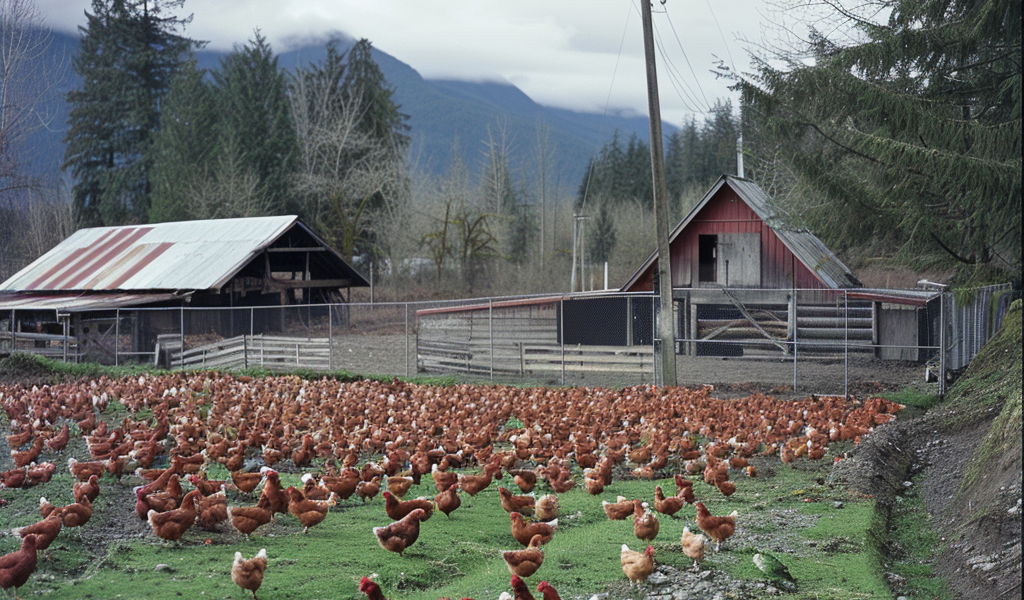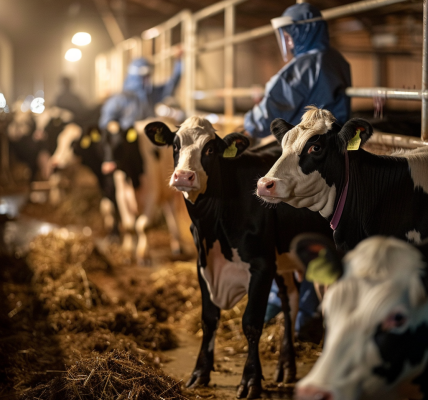In a concerning development for the poultry industry, six commercial poultry farms in the Fraser Valley region of British Columbia have been placed under quarantine due to confirmed outbreaks of avian influenza, specifically the highly pathogenic avian influenza (HPAI). The Canadian Food Inspection Agency (CFIA) reported on October 25 that three of these farms are located in Chilliwack, while the other three are situated in Abbotsford.
This recent outbreak marks a significant shift in the landscape of avian influenza in Canada, as it breaks an eight-month period without any new cases reported nationwide. The last confirmed incidents occurred between February and October, leaving many in the agricultural community hopeful that the virus had been contained. However, with over six million birds in British Columbia potentially affected, the situation has raised alarms.
Currently, Saskatchewan stands as the only other province in Canada reporting a commercial poultry outbreak, highlighting the localized nature of this resurgence. The CFIA has confirmed the presence of HPAI in the newly infected flocks, prompting immediate action to contain the spread of the virus. Primary control zones have been established to restrict the movement of birds in and out of the affected areas, which is crucial in preventing further outbreaks.
While the CFIA has confirmed the outbreaks, details regarding the specific types of poultry involved—such as whether they are broilers or laying hens—have not been disclosed. This lack of information leaves many stakeholders in the industry anxious about the potential economic impact and the health of their own flocks.
British Columbia is home to a significant portion of Canada’s poultry industry, with approximately 155 egg farms located primarily in Abbotsford and Chilliwack. The contagious nature of avian influenza poses a serious threat to these operations, as the virus can decimate a flock within days. The rapid spread of HPAI underscores the importance of biosecurity measures and vigilant monitoring of poultry health.
The CFIA, as the lead agency for managing avian influenza cases, has mandated that all instances of the disease must be reported. This protocol is vital for ensuring a coordinated response and for implementing the necessary control measures to safeguard both animal health and public safety.
As the situation develops, the poultry industry and associated stakeholders will be closely monitoring the response efforts and the effectiveness of the control measures implemented by the CFIA. The impact of these outbreaks on the local economy, poultry prices, and consumer confidence remains to be seen, but the immediate focus is on containing the virus and preventing further spread.
The recent outbreaks serve as a reminder of the ongoing challenges faced by the agricultural sector in managing animal diseases. The resilience of the poultry industry will be tested as it navigates this new wave of avian influenza, and the collaborative efforts of farmers, veterinarians, and government agencies will be crucial in addressing this public health concern.
As the community grapples with the implications of these outbreaks, there is a growing awareness of the need for enhanced biosecurity practices and preparedness strategies among poultry producers. The potential for avian influenza to disrupt not only the poultry industry but also the broader agricultural landscape in Canada necessitates a proactive approach to disease management and prevention.
Stakeholders in the poultry industry are encouraged to remain vigilant and adhere to biosecurity protocols to protect their flocks. Regular monitoring, reporting of unusual health issues, and implementing strict hygiene measures can help mitigate the risks associated with avian influenza. The lessons learned from past outbreaks will be invaluable as the industry works to safeguard its future.
As this situation unfolds, updates from the CFIA and local agricultural authorities will be essential for keeping the public informed about the status of avian influenza in British Columbia and the measures being taken to control its spread.





